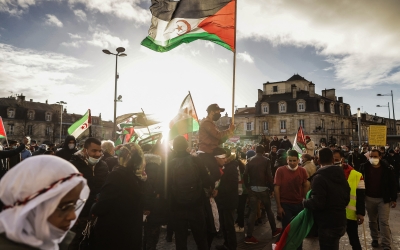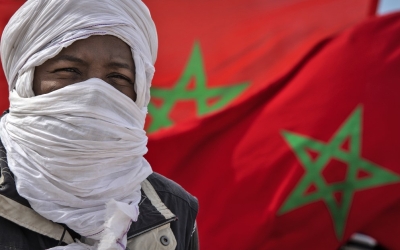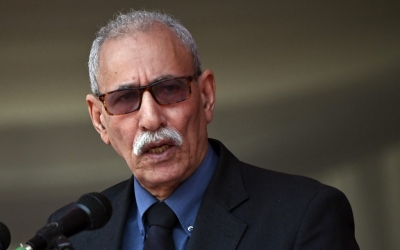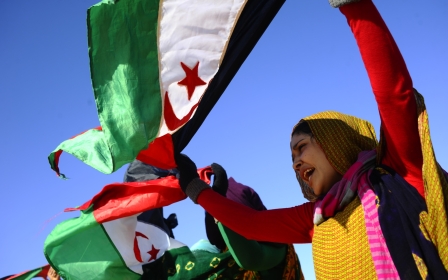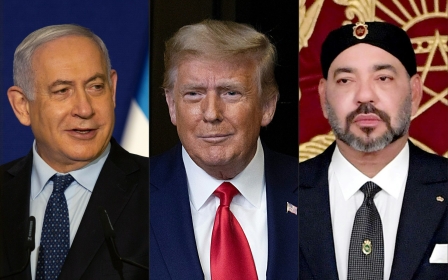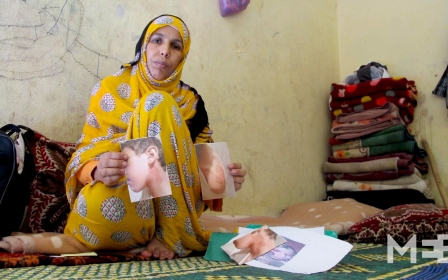Spain accused of appeasing Morocco after Sahrawi activist blocked from prize
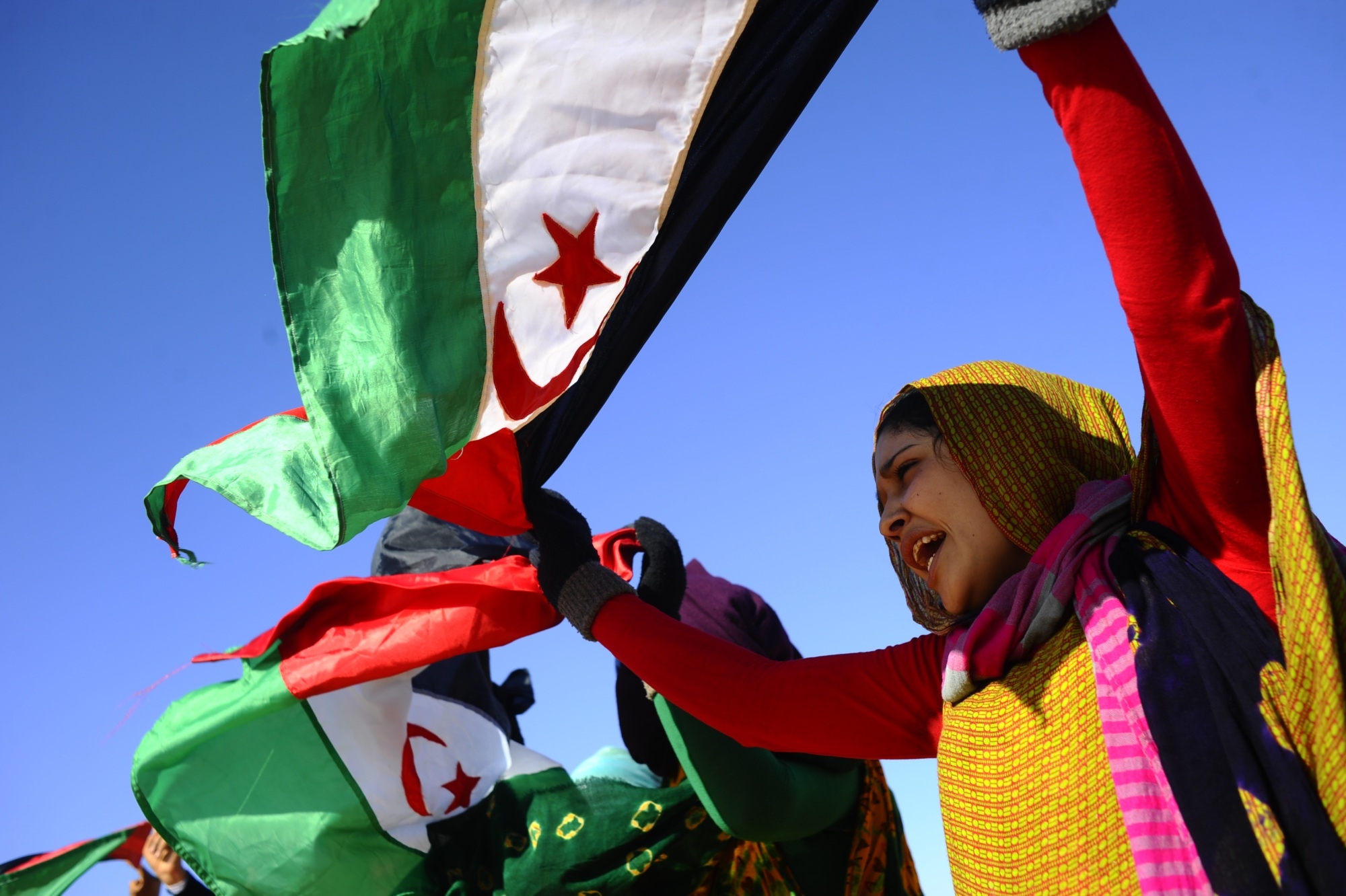
The Spanish government and the EU parliament’s social democratic group has come under fire after it was revealed that the bloc backed a far-right candidate over a Western Sahara activist in the recent vote for the annual Sakharov Prize for Freedom of Thought, which was won by Russian opposition leader Alexei Navalny.
The EU’s Progressive Alliance of Socialists and Democrats (S&D) urged its members to vote for the former interim president of Bolivia Jeanine Anez - proposed by the parliament’s far-right block - instead of Sahrawi activist Sultana Khaya, who was nominated by the far-left group.
An internal email sent by the Croatian MEP Tonino Picula instructed S&D’s members on the foreign affairs and development committee to cast their vote for Anez, who was nominated by the Spanish far-right party Vox, a member of the European Conservatives and Reformists (ECR) group.
"For tactical reasons to increase our chances in the final vote, we are kindly asking you to support the ECR candidate in the second voting round now," Picula’s email read, according to EUObserver.
The shift came after Khaya and Anez were tied in the opening round of voting, after which a second round was held to determine which of the two would be the third nominee in the final. The Bolivian went on to win the tie-break and featured as a finalist.
S&D’s support for Anez raised some eyebrows among fellow MEPs. The Bolivian politician is accused of staging a coup against her predecessor Evo Morales in 2019 and is currently jailed on charges of “terrorism, sedition and conspiracy”. While in power, Anez was criticised for ruling with an iron fist.
Khaya, meanwhile, is a vocal defender of the Sahrawi cause and is the president of the League for the Defence of Human Rights and against Plunder of Natural Resources. Since November 2020, she and her family have been held under a de facto house arrest, without any charges being formally issued against her.
“The socialist bloc supported a candidate that is fundamentally unnatural because it is a proposal from the extreme right, and because of Anez’s history,” Miguel Urban, a member of the Left group in the European Parliament told Middle East Eye.
“She was involved in a coup and, most importantly, involved in cases of murder and repression, which is very serious. That is a bit embarrassing for the EU and the Sakharov Prize itself, because it’s a prize for freedom of thought and human rights.”
As the former colonial power in the Sahara, Spain has a longstanding involvement in the politics of Western Sahara.
Unlikely candidates
The Sakharov Prize is the EU’s highest human rights award, with the winner receiving $58,000. Completing the trio fighting for the prize were imprisoned Russian opposition leader Alexei Navalny and a group of Afghan women and rights defenders. Navalny went on to win the prestigious award.
“We all knew that neither Anez nor Khaya had the capacity to win the prize, but even being in the final is like winning part of the prize as it brings with it a certain degree of recognition from the European parliament as well as a series of public commitments,” Urban, the MEP who proposed Sultana Khaya for the prize, said.
'It’s not really possible that the group’s president wouldn’t know that her vice-president was giving members an instruction on their vote'
- Miguel Urban, Spanish MEP
Like many Sahrawi activists, Khaya has borne the brunt of consistent repression and control at the hands of the local authorities. Moroccan forces have been accused of beating activists, detaining and sentencing them in dubious judicial processes and surveilling, intimidating and even torturing them.
International organisations, including the UN, Amnesty International and Human Rights Watch, have condemned Morocco's treatment of Sahrawi activists.
On 12 May, a dozen masked members of the security forces raided Khaya’s home, assaulted her and raped her sister. Her 84-year-old mother was also assaulted and beat over the head on another occasion. According to the Spanish outlet Publico, Moroccan security forces also purposely infected Khaya with Covid-19 in September.
“This all weighed less than commercial and geostrategic interests with Morocco. Because a shift of these characteristics cannot be ideologically, politically and formally understood without some very strong external pressures” Urban said.
Tensions between Morocco, the EU and Spain
S&D’s rejection of Khaya’s candidacy has raised concerns over possible pressure from Morocco to bar the Sahrawi activist from a spot in the final.
“They claim the decision was made for tactical reasons, but I don’t believe that to be the case. The reasons were political, they wanted to prevent a Sahrawi activist from being elected so as not to upset Morocco,” says Ignacio Cembrero, the Spanish journalist and former Maghreb correspondent who first broke the story.
Relations between Morocco and the EU have been strained in recent months. In September, Morocco saw its trade deal with the EU annulled due to its apparent dependency on Western Sahara resources, included in the agreement without their consent.
'The Spanish attitude is to try to avoid trouble and to stay away from any kind of accusations or retaliation'
- Jalel Harchaoui, analyst
Picula’s email was sent on behalf of the group’s vice-president Pedro Marques, though questions have risen over the possible involvement of the Spanish government in the group’s decision, as the S&D is led by the Spaniard Iratxe Garcia, a member of the Spanish Socialist Party.
Spain’s relationship with Morocco has also become increasingly tense of late. In June, Spain angered Morocco by allowing the leader of the Sahrawi Polisario Front to enter the country in order to receive Covid treatment. In response, Morocco allowed over 8,000 migrants to enter Spain’s North African enclave of Ceuta.
An ongoing diplomatic row ensued which resulted in the sacking of Spain’s then-minister of foreign affairs over her mismanagement of the crisis.
Both Cembrero and Urban believe S&D’s decision to back Anez would have to have been green-lit by Spain’s ministry of foreign affairs.
“The decision by the socialist bloc, led by Garcia, to support Anez was most likely taken after consulting the Spanish ministry of foreign affairs, which is striving to normalise the relationship with Morocco,” Cembrero wrote.
Marques has denied that diplomatic issues with Morocco influenced S&Ds decision, telling EUObserver that “the strategic vote only means that if the left wing votes are not divided in the final round, there is a good chance the Afghan women win the Sakharov Prize.”
Picula was not available for comment when approached by Middle East Eye. An S&D spokesperson for Garcia told Middle East Eye that the group’s president was “not aware or involved” in the decision to back Anez.
Nonetheless, the socialist bloc’s reasoning has stirred some doubts among analysts and MEPs.
“It’s not really possible that the group’s president wouldn’t know that her vice-president was giving members an instruction on their vote. It’s an excuse given for the press,” Urban said.
Allegations of appeasement
Cembrero believes this case is a reflection of a larger Spanish effort to appease Morocco.
“It’s not a peculiar move, it forms part of a wider narrative from the Spanish authorities of refusing to do anything that might annoy Morocco, not even allowing Khaya to be nominated when she realistically wouldn’t have gone on to win,” he said.
The Spanish administration is aware that it must tread carefully in order to mend relations with Morocco, and is also wary of any potential repercussions on the renegotiation of the EU-Morocco trade deal.
“Spain is looking at what happened in Ceuta and they don't want to repeat it, so the fear factor is quite large from Madrid's perspective. The Spanish attitude is to try to avoid trouble and to stay away from any kind of accusations or retaliation,” said Jalel Harchaoui, a senior fellow and political analyst at Global Initiative, who also believes the drama surrounding the prize is more to do with Spain.
“Spain doesn’t want to be held responsible for anything that could shed a positive light on Polisario resistance within the EU because Morocco will just attribute whatever happens regarding potential appeals about the trade deal to them,” he told MEE.
“If Khaya had won, it would have been on them and they don’t want Morocco to go after them because it’s just not worth it. It's not the most courageous route but it captures the current mood.”
This article is available in French on Middle East Eye French edition.
Middle East Eye propose une couverture et une analyse indépendantes et incomparables du Moyen-Orient, de l’Afrique du Nord et d’autres régions du monde. Pour en savoir plus sur la reprise de ce contenu et les frais qui s’appliquent, veuillez remplir ce formulaire [en anglais]. Pour en savoir plus sur MEE, cliquez ici [en anglais].


